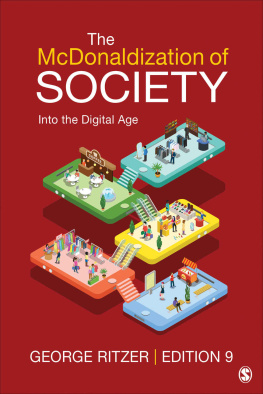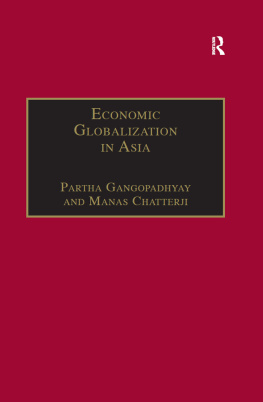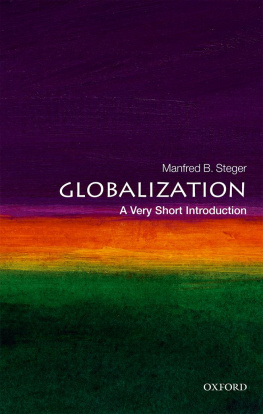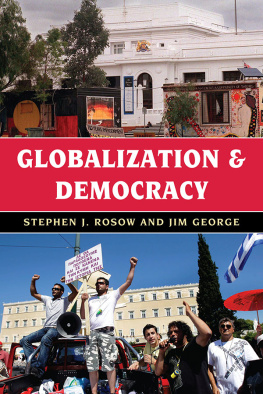George Ritzer - The Globalization of Nothing 2
Here you can read online George Ritzer - The Globalization of Nothing 2 full text of the book (entire story) in english for free. Download pdf and epub, get meaning, cover and reviews about this ebook. year: 2007, publisher: SAGE, genre: Politics. Description of the work, (preface) as well as reviews are available. Best literature library LitArk.com created for fans of good reading and offers a wide selection of genres:
Romance novel
Science fiction
Adventure
Detective
Science
History
Home and family
Prose
Art
Politics
Computer
Non-fiction
Religion
Business
Children
Humor
Choose a favorite category and find really read worthwhile books. Enjoy immersion in the world of imagination, feel the emotions of the characters or learn something new for yourself, make an fascinating discovery.

- Book:The Globalization of Nothing 2
- Author:
- Publisher:SAGE
- Genre:
- Year:2007
- Rating:4 / 5
- Favourites:Add to favourites
- Your mark:
- 80
- 1
- 2
- 3
- 4
- 5
The Globalization of Nothing 2: summary, description and annotation
We offer to read an annotation, description, summary or preface (depends on what the author of the book "The Globalization of Nothing 2" wrote himself). If you haven't found the necessary information about the book — write in the comments, we will try to find it.
The Globalization of Nothing 2 — read online for free the complete book (whole text) full work
Below is the text of the book, divided by pages. System saving the place of the last page read, allows you to conveniently read the book "The Globalization of Nothing 2" online for free, without having to search again every time where you left off. Put a bookmark, and you can go to the page where you finished reading at any time.
Font size:
Interval:
Bookmark:

 | Pine Forge Press A Sage Publications Company 2455 Teller Road Thousand Oaks, California 91320 E-mail: order@sagepub.com |
Sage Publications Ltd. 1 Olivers Yard 55 City Road London EC1Y 1SP United Kingdom | |
Sage Publications India Pvt. Ltd. B-42, Panchsheel Enclave Post Box 4109 New Delhi 110 017 India |
The globalization of nothing 2 / George Ritzer.
p. cm.
Includes bibliographical references and index.
ISBN-13: 978-1-4129-4021-4 (cloth)
ISBN-13: 978-1-4129-4022-1 (pbk.)
1. Globalization. 2. GlobalizationSocial aspects. 3. International relations. 4. Nothing (Philosophy) I. Title. II. Title: Globalization of nothing two.
| JZ1318.R583 2007 | |
| 303.48201dc22 | 2006025927 |
| Acquisitions Editor: | Ben Penner |
| Editorial Assistant: | Camille Herrera |
| Project Editor: | Tracy Alpern |
| Copy Editor: | Barbara Coster |
| Proofreader: | Sally Jaskold |
| Typesetter: | C&M Digitals (P) Ltd. |
| Indexer: | Sheila Bodell |
| Cover Designer: | Ravi Balasuriya |
Font size:
Interval:
Bookmark:
Similar books «The Globalization of Nothing 2»
Look at similar books to The Globalization of Nothing 2. We have selected literature similar in name and meaning in the hope of providing readers with more options to find new, interesting, not yet read works.
Discussion, reviews of the book The Globalization of Nothing 2 and just readers' own opinions. Leave your comments, write what you think about the work, its meaning or the main characters. Specify what exactly you liked and what you didn't like, and why you think so.






